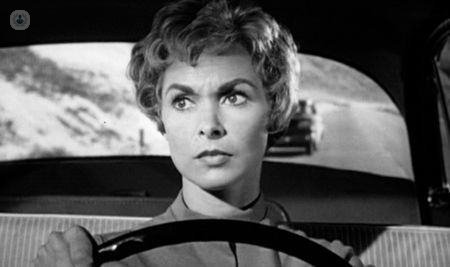What is the origin of Psychosis?
Written by:Psychosis is defined as a mental state in which the individual loses touch with reality, altering its optimum capacity to interpret the events that befall him and to take appropriate and adapted decisions.
Thus, it is usually frequent that the individual shows a strange and unusual behavior, impaired social interaction and overall functioning severely affected (preventing work, family or social life).
Symptoms of psychosis
Psychotic Patients usually present:
- Sensory perception disorders (hallucinations): the individual can see, hear, feel or smell things that do not really exist and are independent of their will. Thus, it is usual that the patient speak alone (soliloquies), as hearing voices and believed to have a partner.
- Abnormal thinking: delusions (mistaken beliefs irrefutable logic), incoherent speech, strange ideas or mental block. In this sense, the patient may believe that it is observed that people talk about him, chasing him or they're up against. Thought disturbances can cause problems concentrating or follow the thread of the conversation.
- Behavioral disorders and psychomotor agitation or inhibition, disorganization, aggressiveness, silence, isolation.
- Affective disorders: mood swings, irritability, euphoria, depressive symptoms, apathy, difficulty in expressing emotions.

Causes and Differential Diagnosis of Psychosis
First, it has to discard the presence of organic pathology as the source of the box. Those psychosis that present with altered level of consciousness and attention, or that occur abruptly, are suggestive of having a medical / somatic underlying cause:
- Intoxication and abstinence from drugs of abuse (cocaine, phencyclidine, etc.).
- Central Nervous System Infections (encephalitis, meningitis) and some types of epilepsy.
- Brain tumors or cysts. strokes.
- Degenerative neurological diseases (Parkinson 's , Huntington 's disease, dementia ...).
- Vascular disorders (systemic lupus erythematosus).
In organic psychoses no identifiable cause the bio-psycho-social model as an explanatory method is used for the development of psychotic illness. The individual would present a genetic vulnerability on environmental precipitants that act.
Types of Psychosis
According to the Diagnostic and Statistical Manual of Mental Disorders (DSM-V) various types of psychosis are recognized:
- delusional disorder
- Brief Psychotic Disorder
- schizophreniform disorder
- Schizophrenia
- schizoaffective disorder
Psychotic symptoms may also occur in other mental illnesses such as bipolar disorder, major depression or personality disorders decompensated.
Treatment of Psychosis
The diagnosis and treatment of psychosis has to be always doctor, treating the underlying disease (if any), and psychotropic drugs (usually antipsychotics) prescribed by a specialist in psychiatry , who will advise on the time of treatment and type intervention.
It is essential, also, appropriate psychosocial support.


